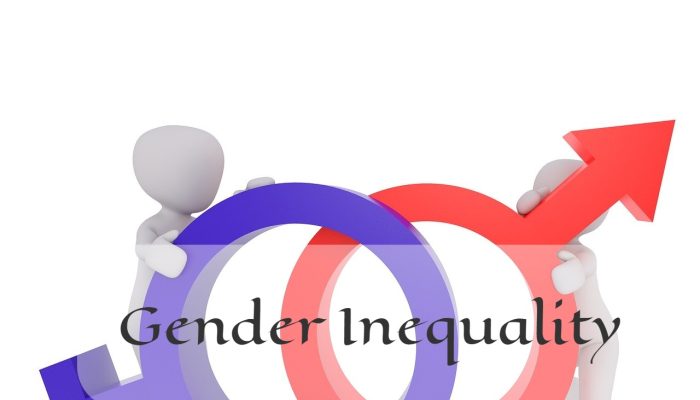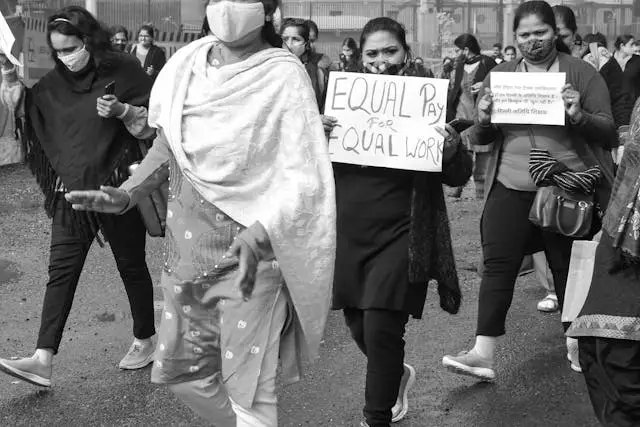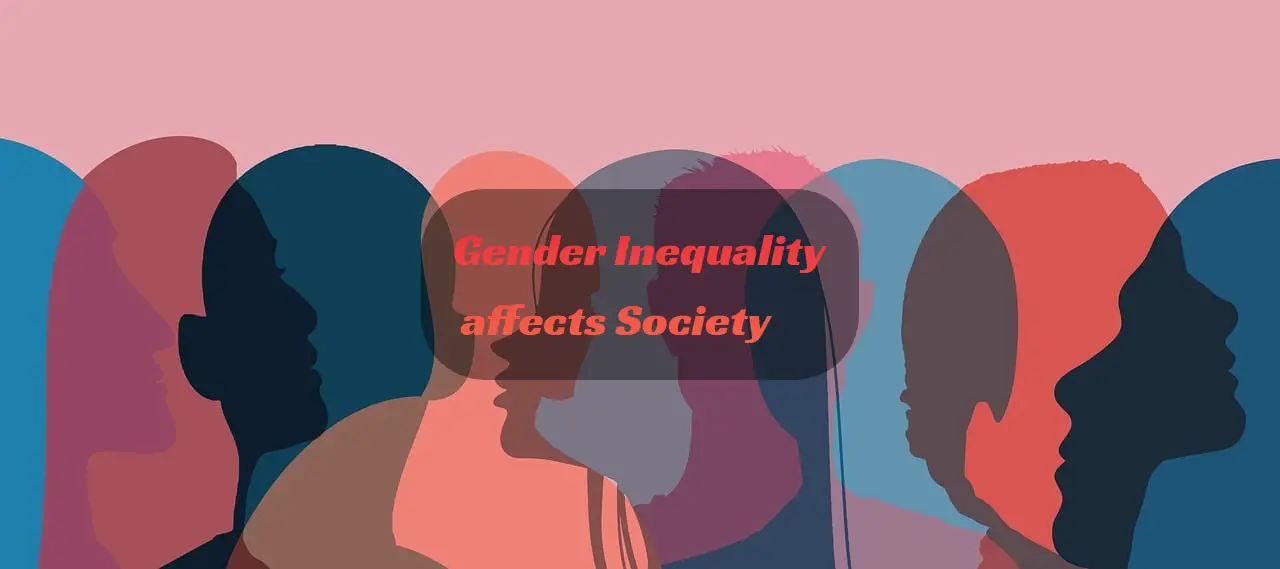Table of Contents
How Does Gender Inequality Affect Society: A Comprehensive Overview
Gender inequality is one of the most pressing issues that societies worldwide still grapple with, despite significant strides toward equality in recent decades. But how does gender inequality affect society?
From education and career opportunities to social structures and economic growth, gender inequality seeps into every corner of our lives, holding back potential and perpetuating stereotypes.
This blog delves into the many layers of gender inequality, discussing its profound impact on individuals and communities. Understanding these effects is essential for building a more just and equitable world for all. Let’s dive into how gender inequality shapes our present and future.
Related Article: Why is Gender Inequality an issue

How Does Gender Inequality Affect Society’s Economy?
One of the most significant consequences of gender inequality is its effect on economic development. When women and other marginalized genders face barriers to entering the workforce, or when they are paid less than their male counterparts for the same work, society as a whole loses out on the potential contributions of half of its population.
Economic Disparities and Wage Gaps
Across the globe, gender pay gaps persist, with women often earning less than men for the same roles. The consequences of this wage gap are far-reaching. As women make up a substantial portion of the workforce, their lower wages impact not only their financial stability but also the economy’s overall growth. When women are paid less, they have less disposable income, which leads to lower levels of consumption, affecting businesses and economic output.
Moreover, gender inequality restricts access to leadership positions, which limits innovation and diversity in decision-making processes. Companies and organizations that fail to promote women into leadership roles often miss out on the benefits that diverse leadership can bring, including fresh perspectives and improved business strategies.
Economic Opportunities and Women’s Empowerment
The lack of equal economic opportunities also affects the entrepreneurial spirit of women and marginalized genders. By limiting access to capital, resources, and networks, gender inequality prevents many individuals from pursuing their business ideas. When society addresses gender inequality in entrepreneurship, it opens doors to new industries, creates more jobs, and fosters a culture of innovation.
How Does Gender Inequality Affect Society’s Health?
Gender inequality doesn’t just affect the economy; it also influences the overall health and well-being of individuals. Gender-based discrimination, unequal access to healthcare, and gender stereotypes all contribute to varying health outcomes between men, women, and other gender identities.
Unequal Access to Healthcare Services
In many regions, women and marginalized genders face barriers to accessing adequate healthcare. These barriers may include financial constraints, lack of education, or social stigmas surrounding their health needs.
For example, women may be denied necessary reproductive health services or face challenges in seeking mental health support due to societal expectations. As a result, gender inequality leads to poorer health outcomes and reduced life expectancy for affected groups.
Mental Health and Gender Inequality
Mental health is another significant area where gender inequality takes a toll. Traditional gender roles often force individuals into predefined boxes, resulting in increased stress, anxiety, and depression. Men, for instance, may be reluctant to seek help for mental health issues due to the stigma surrounding emotional vulnerability, while women may face higher levels of depression linked to societal expectations of caregiving and domestic responsibilities.
How Does Gender Inequality Affect Society’s Education System?
Education is a powerful tool in shaping a more equal society, but gender inequality continues to undermine this potential. When gender stereotypes affect access to education, the quality of learning, and the opportunities for students based on their gender, the ripple effect impacts entire communities.
Gender-Based Discrimination in Education
Around the world, many girls and non-binary students are denied access to education due to cultural and societal norms. In some areas, girls are expected to stay at home to help with domestic chores instead of attending school.
In other parts of the world, gender-based violence in schools prevents students from attending regularly. The lack of education severely limits their future opportunities, perpetuating cycles of poverty and inequality.
Moreover, the gender disparity in fields like science, technology, engineering, and mathematics (STEM) further entrenches inequality. Women and girls are often discouraged from pursuing careers in these fields, which require higher levels of education and training. As a result, gender inequality in education contributes to the gender gap in employment and economic advancement.
The Role of Gender Norms in Educational Choices
Society’s gender norms also influence the subjects and careers that individuals choose to pursue. Girls are often steered toward “feminine” subjects like literature or the arts, while boys are encouraged to pursue math or science. These societal pressures limit personal choices and reinforce gender stereotypes, contributing to the lack of diversity in many sectors, especially those that require specialized knowledge.
How Does Gender Inequality Affect Society’s Social Structures?
The impact of gender inequality is deeply embedded in social structures. From family roles to community participation, gender affects how individuals interact with one another and the expectations they are held to. These social dynamics contribute to the perpetuation of gender inequality across generations.
Traditional Gender Roles and Their Impact
Traditional gender roles, which often dictate what men and women should do, place unfair burdens on individuals. For instance, women are often expected to take on the majority of childcare and housework, while men may face societal pressure to be the primary earners. These roles limit personal freedom and opportunity, often placing unequal demands on women’s time and energy, hindering their ability to pursue careers, education, and personal growth.
Moreover, rigid gender roles contribute to gender-based violence and discrimination, as individuals who step outside of these boundaries are often met with hostility or exclusion. These norms perpetuate harmful stereotypes that limit both men and women from realizing their full potential.
Gender and Social Relationships
The inequality between genders also affects interpersonal relationships, including family dynamics and romantic partnerships. In many societies, women and marginalized genders are expected to prioritize the needs of others, often leading to unequal power dynamics within families. These imbalances can lead to feelings of inadequacy, frustration, and tension, affecting overall well-being.
In relationships, gender inequality can also manifest in power struggles, abuse, and emotional manipulation. A society that values one gender over another creates an environment where relationships may be unhealthy, leading to long-term consequences for the mental and emotional health of individuals.

The Global Impact of Gender Inequality: How Does Gender Inequality Affect Society Worldwide?
Gender inequality is not confined to one specific culture or society—it is a global issue. The extent to which gender inequality affects individuals varies by region, but the underlying patterns of discrimination are consistent worldwide.
Global Economic Impact
On a global scale, gender inequality limits economic growth, as many developing countries fail to tap into the full potential of their female and non-binary populations. By not providing equal opportunities for women in education, employment, and entrepreneurship, these countries miss out on untapped talent and creativity. The global economy could experience significant growth if gender inequality were addressed and women were given the tools and resources needed to succeed.
Gender Inequality in Politics and Governance
Gender inequality also affects political representation and governance. Women are still underrepresented in political leadership positions, both locally and globally. This underrepresentation means that the perspectives and needs of women and marginalized genders are often overlooked in policy decisions, resulting in laws and systems that do not serve the interests of all members of society.
Conclusion: Moving Toward Gender Equality
In conclusion, understanding how gender inequality affects society is crucial for creating a more equitable world. From economic growth and health outcomes to education and social structures, the impact of gender inequality is far-reaching and multifaceted.
Addressing this issue requires collective action across all sectors, including policy reform, education, and societal change. By challenging gender stereotypes, improving access to resources, and empowering all genders, we can create a world that values diversity and equality for everyone.
As we work toward a more inclusive future, it’s essential to recognize the importance of gender equality, not just as a moral imperative, but as a necessity for the betterment of society as a whole.

